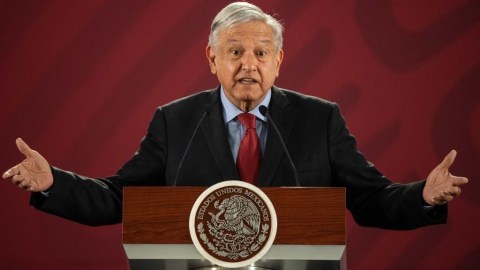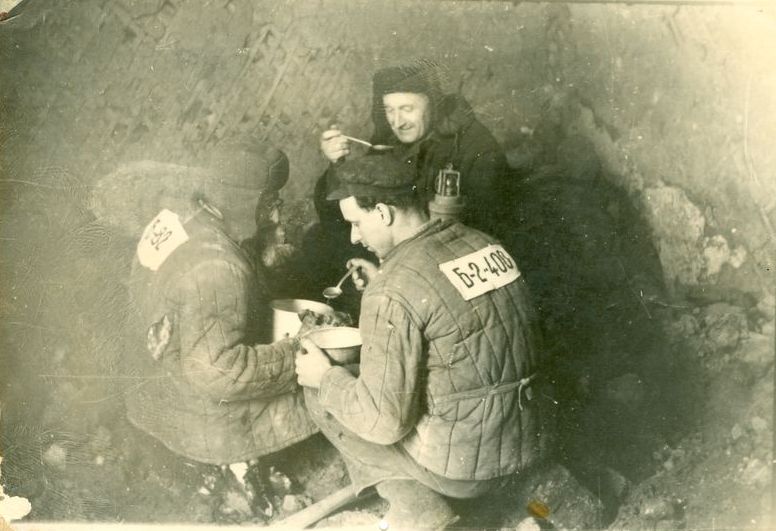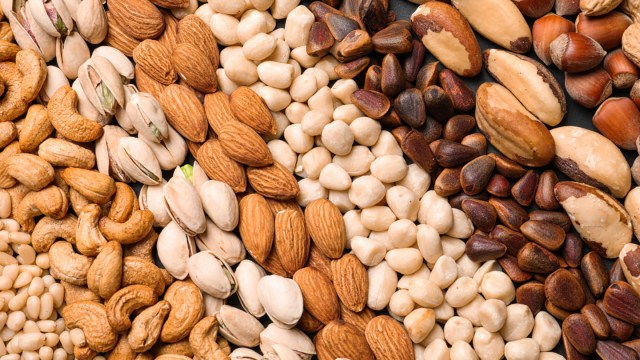Mexico plans to decriminalize all illegal drugs

Getty/PEDRO PARDO
- Mexican President Andrés Manuel López Obrador has long called for reformations to the nation’s drug laws.
- The five-year policy plan calls for prescribing treatment programs instead of punishments to drug users.
- It’s unclear what effects the laws would have on Mexican cartels, which make the bulk of their money selling drugs in the U.S.
Mexican President Andrés Manuel López Obrador wants to decriminalize illegal drugs in in the nation, where drug-use rates have soared over the past decade and thousands die every year in drug-related murders.
The five-year policy outline wouldn’t make drugs legal, but it would offer users treatment instead of punishment by redirecting “the resources currently destined to combat their transfer and apply them in programs — massive, but personalized — of reinsertion and detoxification,” Obrador’s policy statement read.
It’s “generally positive” news for drug law reformation advocates like Zara Snapp of the Instituto RIA and the coalition #RegulacionPorLaPaz, though she told Marijuana Moment that some are concerned that the language of the law stigmatizes drug users, many of whom don’t necessarily need treatment.
Obrador repeatedly called for reformation to the country’s drug laws during his presidential campaign, with slogans like “Hugs, not gunshots.” He says the decades-long “war on drugs” isn’t working, and decriminalization paired with rehabilitation programs is the only feasible solution.
“Public safety strategies applied by previous administrations have been catastrophic: far from resolving or mitigating the catastrophe has sharpened it,” his statement read, adding that “prohibitionist strategy is unsustainable.”
The move reflects shifting attitudes in the U.S., where marijuana is becoming increasingly legal across the 50 states. Currently, a bill that’s set to legalize cannabis is working its way through the country’s federal government.
“The war on drugs has been extremely costly, not just in terms of government resources, but also human lives, and it has failed to accomplish its objective,” Steve Hawkins, executive director of the Marijuana Policy Project, told Newsweek. “Prohibition policies have, by and large, caused more harm to people and communities than the drugs they were intended to eliminate, and they haven’t come anywhere close to eliminating the supply or the demand.”
Obrador said he wants to pursue drug law reform in conjunction with the United Nations and the U.S., where it’s estimated that $19 to $29 billion worth of Mexican cartel drugs are sold each year.
Why not legalize drugs altogether in Mexico?
Some have suggested that completely legalizing drugs in Mexico and the U.S. would cripple the cartels. But the Trump administration has said it would refuse to support any such legislation in Mexico or “anywhere.”
“I can say that we would not support the legalization of all drugs anywhere and certainly wouldn’t want to do anything that would allow more drugs to come into this country,” said White House press secretary Sarah Sanders.
It’s also worth noting that cartels don’t only make money through drug trafficking.
“Before, we had organized crime, but operating strictly in narcotrafficking,” Eduardo Guerrero Gutiérrez, a consultant and former presidential advisor, toldForeign Policy. “Now we have a type of mafia violence… and they are extorting from the people at levels that are incredibly high — from the rich, from businesses.”
Still, decriminalization and regulation of some parts of the drug market in Mexico could help to shine a light on corruption.
“A regulated drug market provides a great opportunity to lift the curtain on all the corruption we know already exists around drugs,” Snapp told Vox. “It can force transparency.”





